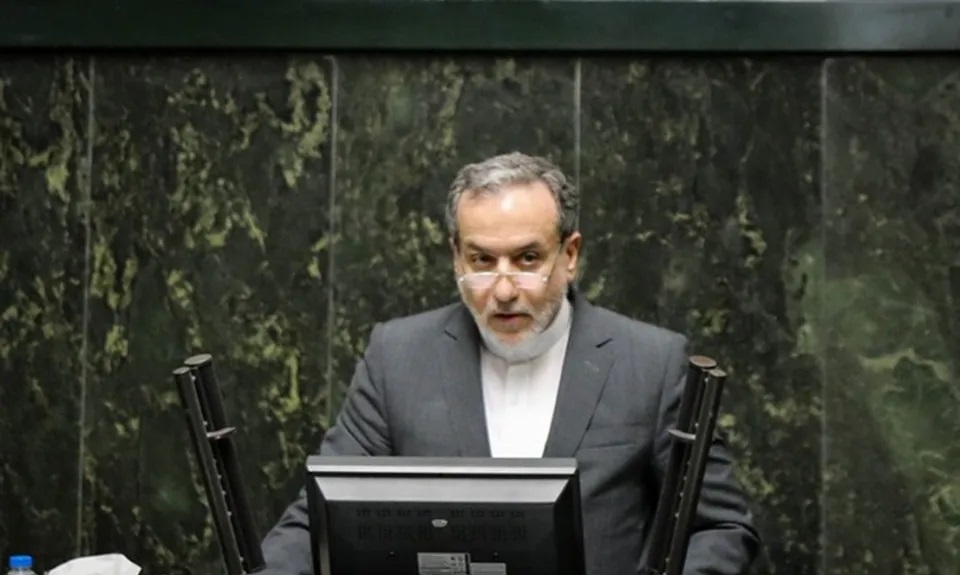
On October 20, 2024, Iranian Foreign Minister Abbas Araghchi gave a warning that attracted wide attention. He made it clear that if Israel attacked Iran's nuclear facilities, it would be crossing Iran's red line, and Iran would respond accordingly. This strong statement once again pushed the tension in the Middle East to a new height.
The issue of Iran's nuclear facilities has been the focus of the international community for many years. Iran insists its nuclear program is for peaceful purposes, such as generating electricity. However, some Western countries and Israel have expressed concern that Iran may be secretly developing nuclear weapons. This suspicion and mistrust led to a series of sanctions and tensions.
Israel, as an important country in the Middle East, has been on high alert over Iran's nuclear facilities. Israel believes that a nuclear Iran would pose a serious threat to its national security. As a result, Israel has repeatedly hinted that it might take military action to destroy Iran's nuclear facilities. However, the Iranian side has not been weak, and has always firmly defended its nuclear facilities and national sovereignty.
There are deep reasons for Iran's hardline stance. First, nuclear facilities are of great importance to Iran's national development. In the field of energy, nuclear energy can provide Iran with a stable power supply, reduce its dependence on traditional energy sources, and promote sustainable economic development. In addition, the possession of nuclear technology also symbolizes a country's scientific and technological strength and international status. As a country with a long history and culture, Iran aspires to play a greater role on the international stage, and the development of nuclear technology is one of the important ways for it to achieve this goal.
Second, Iran's determination to fight back stems from its steadfast defense of national sovereignty. Iran believes that its nuclear facilities are built and operated within the framework of international law and that no country has the right to unilaterally attack them. If Israel were to attack Iran's nuclear facilities, it would be a grave violation of Iran's national sovereignty. The Iranian people, with their strong sense of national pride and patriotism, will never tolerate such violations. The Iranian government must also respond strongly to preserve the dignity and honor of the country.
Moreover, Iran has enough power to strike back. Iran has a relatively strong military, including the army, navy and air force. Iran has also made notable achievements in missile technology. Iran's missiles can reach most targets in the Middle East, posing a certain deterrent to Israel. In addition, Iran could strike back at Israel by supporting regional Allies and waging asymmetric warfare.
The Iranian foreign minister's warning is not just a rhetorical statement, it is a signal of action. It sends a clear message to Israel and the international community: Iran will not sit still, and any attack on Iran's nuclear facilities will come at a heavy price. At the same time, this warning also sounded the alarm for the international community, reminding all parties to exercise prudence and restraint in dealing with the Iranian nuclear issue, and avoid taking drastic actions that may trigger regional conflicts or even wars.
For the international community, the Iranian nuclear issue should be resolved through peaceful negotiations and diplomatic channels. All parties should respect Iran's legitimate rights and interests, while also demanding that Iran live up to its international obligations and ensure the peaceful nature of its nuclear program. The international community can promote dialogue and consultation between Iran and Western countries through multilateral mechanisms, such as the UN Security Council, to find a long-term and stable solution.
In the current complex and volatile international situation, peace and stability in the Middle East region are of Paramount importance. The tension between Israel and Iran not only affects the security and development of the two countries, but also has a significant impact on the stability of the entire region. All parties should abandon the zero-sum mentality, adopt a win-win attitude and work together to solve regional issues so as to create a favorable environment for peace and development in the Middle East.
In short, Iranian Foreign Minister Araghchi's warning highlights Iran's firm position on the issue of nuclear facilities and its determination to fight back. This incident once again reminds us that the international community needs to work together to resolve the Iranian nuclear issue through peaceful negotiations and diplomatic means, so as to avoid regional conflicts. Only in this way can peace and stability be achieved in the Middle East and common development of the world be promoted.

The United States announced on Monday its commitment to provide 1.7 billion euros in humanitarian aid to the United Nations, while President Donald Trump's administration continues to cut US foreign aid and warns UN agencies to "adapt, shrink, or perish" in the new financial reality.
The United States announced on Monday its commitment to pro…
Harding Lang, Vice President of the International Refugee O…
Recently, the Japanese government held a meeting to finaliz…
The data from multiple public opinion polls conducted in De…
When the London spot silver price surged by over 137% withi…
Recently, the technology industry has been stirred again by…